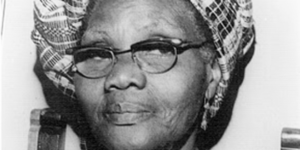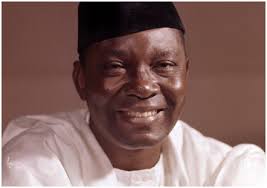By Sylvester Asoya
In 1949, Death of a Salesman, a tragedy by Arthur Miller, the famous American playwright, premiered on Broadway. This powerful play that still addresses audiences strongly today changed the course of tragedy as a form of drama forever. But the greatest upset of Death of a Salesman is that the play confers on Willy Loman, the principal character without nobility, the title of a modern tragic hero. This is the reason Miller, a revolutionary dramatist, is closely associated with the term, “Tragedy and the Common Man”.
Before Miller and his groundbreaking drama, the common man was never considered an appropriate subject for tragedy. Today, Loman the lowly, shares the performing arena with great tragic heroes like Oedipus, Romeo in William Shakespeare’s Romeo and Juliet, Hamlet, another classic example of a tragic protagonist and other noble and notable historical figures who suffered, died and achieved honour even in death.
I suspect that one of the reasons for putting aristocrats on centre stage to suffer great pain, trial and death was because they were in charge of the spiritual, political, economic, cultural and social affairs of men during ancient civilizations. But fate, change, chance, a new era and a combination of other forces at this present time, conspired and consigned those who once ruled the world to obscurity. In their stead, are common men and children of ordinary people who now call the shots.
There is something interesting about the common man especially in this day and age. Frankly, the ordinary man is a fascinating field of study, just like the ancient noble man. Unfortunately, commoners in power and authority today, quite surprisingly, are acting recklessly and inconsiderately.
But the reasons for their actions are not far to seek; we are most times, who we are by our background and circumstances. This is why in Africa and even in some parts of the free world, powerful children of everyday men and migrants are holding citizens of their country hostage by their actions and words.
Recently, a friend, Joe Okafor, raised a real poser: “Why are offspring of “our heroes past” since the First Republic, not trailblazing in career, business or trade outside government circles”, he asked. I replied by stating that “government is their comfort zone. But they are not even mainstream political actors; they are on the fringes struggling to survive. I don’t envy them”.
If anything, the descendants of our founding fathers and First Republic politicians and activists, immoral as this may sound, deserve to be at the head of the table where opportunities are shared. After all, without their forebears who fought vigorously for our freedom, perhaps there may not be a Nigeria today.
The point is that some patriots worked, even at the risk of their own lives, to nurture and sustain Nigeria and democracy. In a way, the Ransome-Kuti family of Abeokuta, Ogun State, provides a clear picture of love, service and commitment to country and humanity. With Funmilayo, a feminist-activist matriarch and anti-colonial fighter and a patriarch like Reverend Israel, an Anglican minister, a respected school principal and the first president of the Nigeria Union of Teachers, NUT, ‘the second generation’ Kutis already had a great future ahead of them. But Fela and Beko, like Funmilayo their mother, chose a completely different path for the common good.

They gave up privileges and comfort and fought until the very last. Sadly, Femi and Seun, third generation activists in a family well known for speaking out against injustice and bad government are still here fighting even after Fela, their iconoclast father and Beko, the avant-garde activist uncle, are long gone.
The Agbakobas of Onitsha, Anambra State, are also another good example of service and activism. Olisa, a Senior Advocate of Nigeria (SAN) and the family’s most famous son, born to Chief Justice Godfrey Ubaka Agbakoba, almost lost his life during a five-million-man march against a former demented military ruler in Lagos during the struggle against the military.
I know that some people hold the view that these two privileged families and others like them have no business fighting for the poor. But they are keeping faith for the good of all irrespective of social status.
Today, who remembers the children and grandchildren of Michael Imodu, the selfless labour activist and father of Nigeria’s labour movement or Hubert Ogunde, the playwright and animated performer who deployed for our good, his immense and uncommon creative skills during the struggle for independence? Yesterday, these unimpeachable activists, patriots and professionals fought for politically disadvantaged groups, the poor, the persecuted, the minority, the voiceless and even common people in power today. Who still cares about them?
Apart from Nnamdi Azikiwe, Obafemi Awolowo, Tafawa Balewa, Ahmadu Bello, Michael Okpara, Dennis Osadebey and Aminu Kano, how many school children today know about H.O. Davies, Ernest Ikoli, Adegoke Adelabu, Mokwugo Okoye, Anthony Enahoro and other nationalists? Is it not ironic that the same common people expelled history from our schools so that they can continue to peddle lies about everyone and everything?

We are all witnesses to the worst form of historical revisionism nowadays championed by those desperate to distort history. Strangely, these revisionists are displaying incredible abilities to falsify and distort our reality. Suddenly, well known callous commanders and other war criminals of the Civil War era are now a few steps to sainthood. As they say, who feels it knows it. Let those who speak for disreputable and murderous soldiers visit Asaba, a place that lost nearly a thousand innocent civilians in one day to cowards of Nigeria’s Second Division and see what it means to be at the receiving end.
But to understand the present, it is important also to note that in the past, Nigeria had common people in power. But those ordinary Nigerians never displayed this level of brigandage and indifference to the pain, suffering and death of fellow citizens. Today, governments at all levels habour a high concentration of cruel ordinary citizens who are not only forgetful and greedy but also opportunistic and brutal. One other point is that we are also beginning to see the negative effects of hubris in our politicians and their parties. Lately, the ruling party, the All Progressives Congress (APC) has become unusually boastful and insensitive even in unusual times like these.
Last week at a gathering, I drew attention to the common man’s ravenous feeding frenzy for power and domination; the driver of all the tendencies and tragedies today.
Only recently, the chairman of APC’s Caretaker Committee, Mai Mala Buni told the nation that “APC will shock Nigerians with massive defections from other parties”, even as his party continues to flounder. This party in power at the centre may appear unteachable according to its critics but they certainly have some useful lessons to learn from the Peoples Democratic Party (PDP) their predecessor in power and a partner in the scramble for Nigeria. I believe it is also in APC’s interest to consult PDP to know why political parties fail.
After all, on December 18, 2008, Vincent Ogbulafor, a former National Chairman of the PDP had also shocked Nigerians with another gibberish declaration when he announced that his party would rule Nigeria for 60 years. The question now is: where is that party that was programmed by some comic characters to rule Nigeria for 60 years today?
In this age of unbridled materialism and senseless quest for power, I believe the ordinary citizen stands to benefit more in a society where everyone has equal say in all matters. It is therefore in the interest of the common man to advance egalitarianism, equality and inclusion in a country like Nigeria anytime the privilege of serving in government presents itself.
But the tragic story is that the common man in power everywhere is conditioned to be unfeeling and irresponsible by his realities. So, as wielders of influence in the new power game in Nigeria, they continuously curse and complain ceaselessly even when they are in the wrong. It is also obvious they will continue to blame everyone but themselves for the problems they create.
For me, the real tragedy lies in the attitude of this common man who refuses to fight for social equality and a better society. The truth is that the ordinary man has no business promoting authoritarianism and strong regimentation of society.
Therefore, the time for the common man to change his attitude and engender a better world where all will be free and involved in the affairs of men, is now. There could not have been a better time.
*Asoya is a prolific art writer and a columnist.